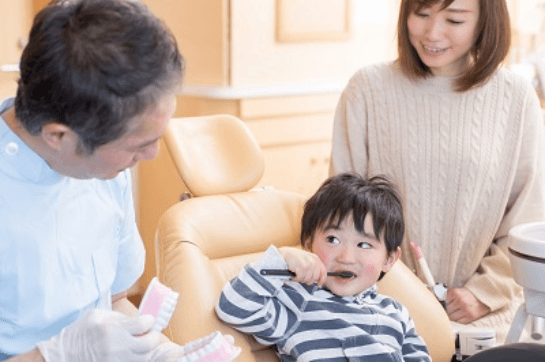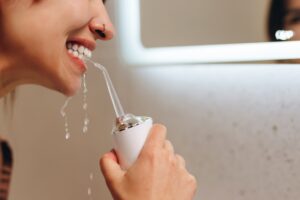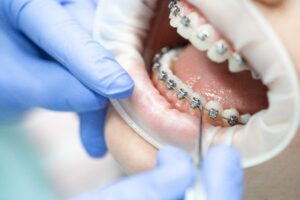As parents, we do everything we can to keep our children healthy and happy: feeding them healthy foods, waking up with them in the middle of the night, going to regular doctor’s checkups, listening to the Teenage Mutant Ninja Turtle theme song on repeat for six hours a day (my personal parenting sacrifice from this last week). However, in South County and other areas in St. Louis, there is a widely-overlooked chronic disease that adversely affects both a child’s health and happiness. It can cause intense pain and possible infection, and can lead to problems with eating, speaking, playing, and learning.
What is this disease? Cavities.
Cavities are the most common chronic disease of childhood in the United States. About 1 in 5 (20%) children aged 5 to 11 have at least one untreated decayed tooth. Thankfully, cavities are preventable.
Here are a few ways to improve your child’s oral health:
For babies:
● When baby teeth start to emerge, brush your baby’s teeth with water and a small, soft-bristled toothbrush that fits comfortably in their mouth.
● As your baby approaches their first birthday, switch from baby bottles to sippy cups. Not only do bottles increase tooth decay, prolonged bottle use can also affect the positioning and development of adult teeth.
● Do not put your baby or toddler to bed with a sippy cup or bottle. Milk and juice contain sugars that can cause tooth decay if they remain on a child’s teeth for long periods of time.
● Parents and caregivers should avoid sharing utensils with a child or cleaning pacifiers by putting them into their mouth. These actions can pass an adult’s cavity-causing bacteria to their child.
● Make sure your child visits Dr. Stallings or another dental health professional within six months of when their first tooth emerges, or around their first birthday. This visit will allow Dr. Stallings to catch potential problems early and apply a fluoride varnish to stave off cavities, as well as help your baby get accustomed to dental visits.
● For children under two years old, consult with Dr. Stallings before using fluoridated toothpaste
For children:
● Children should brush their teeth twice a day, in the morning and in the evening before bed.
● Using fluoride toothpaste is essential to help strengthen your child’s teeth and fight cavities. Children can also get additional fluoride supplements from tap water. To see if your community’s water is fluoridated, you can view your water system on CDC’s My Fluoride website. https://nccd.cdc.gov/DOH_MWF/Default/Default.aspx
● If your drinking water does not have enough fluoride to prevent cavities (the optimal amount is 0.7 milligrams per liter), ask Dr. Stallings if your child needs oral fluoride supplements, such as drops, tablets, or lozenges.
● Visit Dr. Stallings office for check-ups twice a year to stop potential problems and address any emerging cavities.
● Your child’s chances of developing cavities is higher if they have family members with cavities, drink sugary foods or drinks, have special needs, or wear braces or an oral appliance.
Pregnant Women
● If you are pregnant, you may be more prone to gum disease and cavities. This can prove harmful to not only your health, but your baby’s health as well.
● Visit Dr. Stallings before you deliver. Make sure to inform them that you are pregnant during the visit, and he can help address any concerns.
● Brush twice a day and floss daily. If you have nausea, rinse your mouth with 1 teaspoon of baking soda in a glass of water after you get sick. This will help wash your stomach acid off your teeth and keeps your enamel safe.
Sources:
https://www.cdc.gov/oralhealth/basics/childrens-oral-health/index.html
https://www.medicalnewstoday.com/articles/324708#summary




